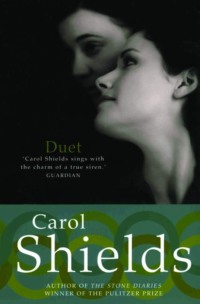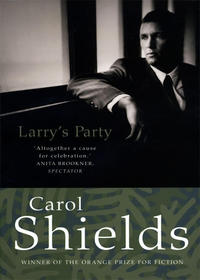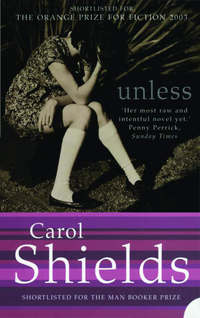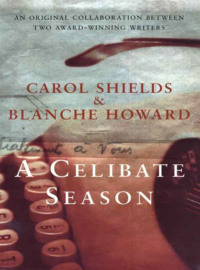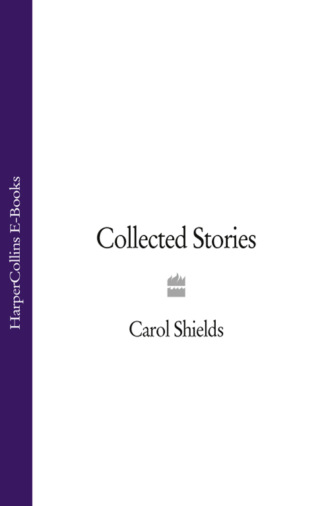
Полная версия
Collected Stories

The Collected Stories
CAROL SHIELDS

For Emma and Alden
Contents
Cover
Title Page
Introduction By Margaret Atwood
Segue
Various Miracles
Various Miracles
Mrs. Turner Cutting the Grass
Accidents
Sailors Lost at Sea
Purple Blooms
Flitting Behavior
Pardon
Words
Poaching
Scenes
Fragility
The Metaphor Is Dead—Pass It On
A Wood (with Anne Giardini)
Love so Fleeting, Love so Fine
Dolls, Dolls, Dolls, Dolls
Invitations
Taking the Train
Home
The Journal
Salt
Others
The Orange Fish
The Orange Fish
Chemistry
Hazel
Today Is the Day
Hinterland
Block Out
Collision
Good Manners
Times of Sickness and Health
Family Secrets
Fuel for the Fire
Milk Bread Beer Ice
Dressing Up for the Carnival
Dressing Up for the Carnival
A Scarf
Weather
Flatties: Their Various Forms and Uses
Dying for Love
Ilk
Stop!
Mirrors
The Harp
Our Men and Women
Keys
Absence
Windows
Reportage
Edith-Esther
New Music
Soup du Jour
Invention
Death of an Artist
The Next Best Kiss
Eros
Dressing Down
About the Author
From the reviews of Collected Stories:
BY THE SAME AUTHOR
Copyright
About the Publisher
Introduction By Margaret Atwood
I began reading Carol Shields’s books many years ago, with The Box Garden. In that novel there’s a passage that made me laugh so hard I thought I would do myself an injury. It’s the chapter describing a mother with scant taste but a lot of energy, who spends her time like a down-market and rather crazed Martha Stewart, relentlessly decorating her modest house - papering and re-papering its walls, hand-painting its lampshades, dying its scatter rugs - much to the alarm of her adolescent daughter, who never knows what new, ferocious colour the house will be when she gets home from school.
This, I thought, was not only terrific satire, but fine comedy as well. Yet when I recently read the passage again, it no longer struck me as all that funny. Now - years later, and with several demented decorating episodes of my own behind me - I found it poignant, even faintly tragic. The mother is defeated by her house, in the end. She abandons her doomed attempts to make it into a work of art. She recognizes the futility of her efforts. Time claims her. She sinks down. She gives up.
This ability to strike two such different chords at once is not only high art, it’s also the essence of Carol Shields’s writing - the iridescent, often hilarious surfaces of things, but also their ominous depths. The shimmering pleasure boat, all sails set, skimming giddily across the River Styx.
Carol Shields died on 16 July 2003 at her home in Victoria, British Columbia, after a long battle with cancer. She was sixty-eight. The enormous media coverage given to her and the sadness expressed by her many readers paid tribute to the high esteem in which she was held in her own country, but her death made the news all around the world.
Conscious as she was of the vagaries of fame and the element of chance in any fortune, she would have viewed that with a certain irony, but she would also have found it deeply pleasing. She knew about the darkness, but - both as an author and as a person - she held on to the light. ‘She was just a luminous person, and that would be important and persist even if she hadn’t written anything,’ said her friend and fellow author Alice Munro.
Earlier in her writing career, some critics mistook this quality of light in her for lightness, light-mindedness, on the general principle that comedy - a form that turns on misunderstanding and confusion, but ends in reconciliation, of however tenuous a kind - is less serious than tragedy, and that the personal life is of lesser importance than the public one. Carol Shields knew better. Human life is a mass of statistics only for statisticians: the rest of us live in a world of individuals, and most of them are not prominent. Their joys, however, are fully joyful, and their griefs are real. It was the extraordinariness of ordinary people that was Shields’s forte. She gave her material the full benefit of her large intelligence, her powers of observation, her humane wit, and her wide reading. Her books are delightful, in the original sense of the word: they are full of delights.
She understood the life of the obscure and the overlooked partly because she had lived it: her work reveals a deep sympathy with the plight of the woman novelist toiling incognito, appreciated only by an immediate circle but longing for her due. Born in 1935 in the United States, Shields was at the tail end of the post-war generation of North American college-educated women who were convinced by the mores of their time that their destiny was to get married and have five children. This Carol did; she remained a devoted mother and a constant wife throughout her life. Her husband Don was a civil engineer; they moved to Canada, beginning with Toronto in the sixties, a time of poetic ferment in that city. Carol, who was already writing then, and attended some readings, said of that time, ‘I knew no writers.’ Undoubtedly she felt relegated to that nebulous category, ‘just a housewife’, like Daisy in The Stone Diaries and like Mary Swann, the eponymous poet who is murdered by her husband when her talent begins to show.
After obtaining an MA at the University of Ottawa, Shields taught for years at the University of Manitoba, in Winnipeg, where she began publishing in the seventies. But this was the decade of rampant feminism, in the arts at least. Her early books, including Others, Intersect, Small Ceremonies, and The Box Garden, which examined the vagaries of domestic life without torpedoing it, did not make a large stir, although some of their early readers found them both highly accomplished and hilarious. She had her first literary breakthrough - not in terms of quality of writing, but in terms of audience size - in Britain rather than in North America, with her 1992 novel The Republic of Love.
Her glory book was The Stone Diaries, which was shortlisted for the Booker Prize and won the Canadian Governor General’s Award, and then, in 1995, the Pulitzer Prize, a feat her dual citizenship made possible. Her next novel, Larry’s Party, won the Orange Prize in 1998. To say that she was not thrilled by success would be to do her an injustice. She knew what it was worth. She’d waited a long time for it. She wore her new-found prominence with graciousness and used it with largesse.
Unless, her last novel, was written in the small space of time she spent in England and France, after beating cancer the first time and before it came back. It’s a hymn to the provisional: the sense of happiness and security as temporary and fragile is stronger than ever. Those who had heard Carol Shields interviewed earlier were probably surprised by a frankly feminist strain in the novel - particularly the angry letters her protagonist, writer Reta Winters, addressed to male pundits dismissive of woman writers - because in conversation she was discreet and allusive. The little frown, the shake of the head said it all. Possibly feminism was something she worked into, as she published more widely and came up against more commentators who thought excellent pastry was a facile creation compared with raw meat on skewers, and who in any case could not recognize the thread of blood in her work, though it was always there. The problem of the luminous is that its very luminosity obscures the shadows it depends on for its brilliance.
Unless was published in 2002; although it was shortlisted for just about every major English-language prize, the Munro Doctrine, informally named after Alice Munro, had set in by then - after a certain number of prizes you are shot into the stratosphere, where you circulate in radiant mists, far beyond the ken of juries.
I last saw Carol Shields at the end of April. Her new house was spacious, filled with light; outside the windows the tulips in her much loved garden were in bloom. Typically for her, she claimed she couldn’t quite believe she deserved to live in such a big and beautiful house. She felt so lucky, she said.
Although she was very ill, she didn’t seem it. She was as alert, as interested in books of all kinds, and as curious as ever. She’d recently been reading non-fiction works on biology, she told me: something new for her, a new source of amazement and wonder. We did not speak of her illness. She preferred to be treated as a person who was living, not one who was dying.
And live she did, and live she does; for as John Keats remarked, every writer has two souls, an earthly one and one that lives on in the world of writing as a voice in the writing itself. It’s this voice - astute, compassionate, observant and deeply human - that will continue to speak to her readers everywhere. For who is better at delineating happiness - especially the sudden, unlooked-for, unearned kind of happiness - than Carol Shields? It’s easier to kill than to give birth, easier to destroy than to create, and easier for a writer to describe gloom than to evoke joy. Carol Shields can do both supremely well, but it’s her descriptions of joy that leave you open-mouthed. The world may be a soap bubble hovering over a void, but look - what astonishing colours it has, and isn’t it amazing that such a thing exists at all?
Such a world - various, ordinary, shimmering, evanescent but miraculous - is a gift; and it’s the vision of this gift that Carol Shields has presented us with in her extraordinary books. We give thanks for it - and for her.
Something has occurred to her—something transparently simple, something she’s always known, it seems, but never articulated. Which is that the moment of death occurs while we are still alive. Life marches right up to the wall of that final darkness, one extreme state of being butting against the other. Not even a breath separates them. Not even a blink of the eye. A person can go on and on tuned in to the daily music of food and work and weather and speech right up to the last minute, so that not a single thing gets lost.
—From The Stone Diaries
Segue
SOMETHING IS ALWAYS SAYING TO ME: Be plain. Be clear. But then something else interferes and unjoints my good intentions.
Max and I were out yesterday morning, Sunday, a simple enough errand in our neighborhood. We “sallied forth” to buy a loaf of good seed bread and a potted plant, chrysanthemums in our case, with the smashed little faces that our daughter so admires, that bitter bronze color, matching the tablecloth she was sure to be laying right that moment out there in Oak Park. Eleven o’clock; my husband Max and I would be expected at half past twelve. We always arrive carrying a modest gift of some sort.
There, at the market, stimulated, probably, by the hint of frost in the air, I felt a longing to register the contained, isolated instant we had manufactured and entered, the purchase of the delicious hard-crusted bread, the decision over the potted plant—this was what I wanted to preserve. But an intrusive overview camera (completely imaginary, needless to say) bumped against me, so that instead of feeling the purity of the coins leaving my hand, I found myself watching the two of us, a man and a woman of similar height, both in their middle sixties, both slightly stooped—you’d hardly notice unless you were looking—and dressed in bright colors, making a performance of paying for their rounded and finite loaf of bread and then the burst of rusty chrysanthemums.
Wait a minute. Shouldn’t there be a grandchild in this picture, a little boy or girl staying over with Nana and Poppa in downtown Chicago for the weekend? Well, no, our aging couple has not been so fortunate.
Our Sunday self-consciousness, the little mid-morning circle around Max and me, was bisected by light and dark. The day bloomed into mildness, October 7, one year and one month after the September 11 tragedy—event, spectacle, whatever you choose to call it. Max is a well-known Chicago novelist—he both loves and hates that regional designation—and he was, of course, spotted by other Sunday morning shoppers. That’s Max Sexton. Where? Over there. Really? A little buzz travels with my husband, around him and above him, which, I believe, dishes out the gold dust that keeps him alive. To be noticed, to be recognized. With his white beard, white swifts of soft hair swept backward, his old-fashioned, toolarge horn-rimmed spectacles, he is a familiar enough sight in our immediate neighborhood, and—allow me to say—in the national journals too, even to the point that he has been mentioned once or twice in the same breath with the Nobel Prize (as a dark horse, the darkest of horses). Not that we ever speak of this. It does not come up, we forbid it, the two of us. He has twice been nominated for the Pulitzer—we don’t speak of that either.
There we were, yesterday morning, a fine Sunday.
Accompanying the novelist Max Sexton was his wife of forty years—me—whose name is Jane; I had my right arm crooked loosely through the great author’s blue nylon jacket sleeve. Plain Jane. Well, not quite, God be thanked. My very good scarf gives me a certain look, not just its color, but the fact that it was knotted high up on the throat. Jane, the wife, the poet and editor, soon (tomorrow) to become past president of the American Sonnet Society—now known as Sonnet Revival—she with her hair in a smooth white pageboy and her reasonably trim body, c’est moi. Notice the earrings, handmade, Mexican. Wouldn’t you just know! Oh God, yes. Yesterday, at the Andersonville market in Chicago’s near-north side, Jane Sexton was sporting an excellent cashmere poncho-thingamajig, deep rose in color, and well-fitting black pants and expensive boots, which she always keeps nicely polished.
Let me say it: I am an aging woman of despairing good cheer—just look through the imaginary camera lens and watch me as I make the Sunday morning transaction over the bread, then the flowers, my straw tote from our recent holiday in Jamaica, my smile, my upturned sixty-seven-year-old voice, a voice so crying-out and clad with familiarity that, in fact, I can’t hear it anymore myself, thank God; my ears are blocked. Lately everything to do with my essence has become transparent, neutral: Good morning, Jane Sexton smiles to one and all (such a friendly, down-to-earth woman). “What a perfect fall day.” “What glorious blooms!” “Why, Mr. Henning, this bread is still warm! Can this be true?”
Max must surely hear the scattershot of my neighborhood greetings, so fond in their expression and so traditionally patterned, exactly what healthy, seasoned, amiable women learn to say in such chapters of their lives. He has, after so many years, a certain amount of faith in my voice, if nothing else, the voice that he’s married to, but then he doesn’t believe, I suspect, that the mystery of being is as deeply manifest in women as in men. The voice, as he perfectly well knows, is a social projection, an oral accomplishment, something I’ve created and maintained along with my feminine peers. I’m just being merry—that’s how I imagine Max processing my ebullience—I’m being cordial in a way that may be slightly dishonest but that keeps life from bearing down with its solemn weight, keeps it nosing forward, and overrides the worst possible story the day might otherwise offer, his story, that is, which could quickly turn dreary and strangulated without my floating social descant riding overhead on strings of nylon. Oh, do shut up, Jane.
Yes, there we stood: the morning’s excursion to the market, which we managed to stretch out an hour longer than it should have taken, then the taxi to our daughter’s house in Oak Park, her austere three-story brick cube on East Avenue (built 1896) where she lives with her film agent husband, Ivan, with its wide front steps and shrubbery and cement cupids—where we were to have lunch, as usual on Sundays, something hot and savory in the dining room, followed by fresh fruit (on French fruit plates, each one different in design, and accompanied by knives with ceramic handles) and afterward coffee, and then the journey home. Ivan, without a word of complaint, will drive us back to our downtown apartment, silently ferrying his mother-in-law, his father-in-law (he is a man who cannot drive and talk at the same time), eastward through the light Sunday traffic, taking Chicago Avenue as usual. He will actually back his old Packard out of the Oak Park garage, slowly, down the narrow overgrown driveway with its scraping branches, wincing as he hears his beautifully restored car suffering instances of minute damage.
I have attempted in my life—at least in the last thirty years—to write one sonnet every fourteen days, and it is my especial (see Fowler’s on the difference between especial and special) pleasure to spread the work out over the available working days. On Mondays, usually in the early morning after the house has been set right, I decide on the form—Italian (for which I have a special fondness), Shakespearean, contemporary or what I, and some of my colleagues, call essentialist. Surprisingly, this choice precedes the subject matter. “But how do you decide what exactly to write about?” asked the Chicago Tribune journalist, Meg Alford, in her early spring article.
As though I would tell her—and the world—about the tiny spiral notebook in the upper-left-hand drawer of my desk with its crowded list recorded randomly in ink or else pencil, and even in one case lip-liner, of new and possible subjects: the smell of taxis, the texture of bread, sleep, chewing gum, Picasso, flints and arrowheads, the cello, the shape of coastal islands and the children who are born on islands, cabbage, shingle beaches, feet, Styrofoam, photographs of the newborn as they appear in the newspaper (with sleek seal-baby faces stroked in stone). Or a medieval wooden Christ image that Max happened upon at the Art Institute, brooms and brushes and dustpans and the concept of debris (how we half treasure what we can’t wait to throw away), a table set for eight (and its companion sestet “Table Set for Seven”), the beauty of coinage when neatly stacked on a counter, urban alleys after dark, and—a mere jump away—the commingling of hollyhocks and overhead wire, and then human faces and their afterimage—an afterimage not being anything like an aura, but possessing a different kind of density altogether. I’ve worked on this particular afterimage/aura construct for the last two weeks, finishing on Saturday afternoon (with a slight alteration round about midnight, two closing words pondered and then juxtaposed), and was more than usually pleased with my efforts, that feeling every poet knows of arrival home, the self returned to its self.
There is never a shortage of subjects, I explained to the Chicago Trib reporter, hoping my teeth were not projecting an idiotic over-gladness at the thought of such abundance waiting to be expressed, matter and ideas swelling forward, eager to be sonnetized.
For the next two weeks my writing will approach the subject of my aging body; I have attempted this subject before, but always with indirection, as though I were peering at it from behind a shrub, so that it could be anyone’s body. Now I must claim it, it seems, as mine. I see it close up: chin, breasts, stomach, hips and legs giving way to specific gravity, which will never relent, no matter what I do. The stars are speeding away from each other—we know that, so why are we surprised when the same thing happens to our various body parts, their willingness to spread and collapse and soften. My kneecaps, the skin that covers them, are as wrinkled as the fuzz of a poached peach, and sliding downward, always downward. But no one sees my knees anymore, so it doesn’t matter.
Sonnet writing—and this is what I wanted the Trib reporter to understand—no longer confines itself to the professing and withdrawing of courtly love, although I insisted that a nod to such love is always hovering, or rather nudging. Is this notion true or just part of my fussy exegetic self? Courtly love? Who knows what shadow of that instinct survives? To be honest (not that I was honest with the slender, leather-skirted junior reporter and her tape recorder), it’s only a suspicion borrowed from Max’s belief that every novel, whatever its genre or subject, is about death. I certainly have never bought that one, not for a minute. A novel is about everything it touches upon, and so is a sonnet.
I reminded the reporter that sonnet means “little sound.” “Oh,” she said, and I could tell by the way her pen jumped in her hand that she was charmed by the idea; people almost always are.
Sonnets are taken so strenuously, so literally, when taught at school, or at least they used to be, and the definition—fourteen lines of rhymed iambic pentameter—hardens and ends up gesturing toward an artifact, an object one might construct from a kit. But if you picture the sonnet, instead, as a little sound, a ping in the great wide silent world, you make visible a sudden fluidity to the form, a splash of noise, but a carefully measured splash that’s saved from preciosity by the fact that it comes from within the body’s own borders; one voice, one small note extended, and then bent; the bending is everything, the volta, the turn, and also important is where it occurs within the sonnet’s “scanty plot of ground,” to quote old Wordsworth. From there the “little sound” sparks and then forms itself out of the dramatic contrasts of private light and darkness.
Max’s novels, on the other hand, come as a communal roar, especially the most recent one, Flat Planet, which was published with exquisitely poor timing, last year, 2001, on September 10.
Of course, no one had time to read the ensuing reviews of Flat Planet, no one cared about social novels and novelistic dioramas during that pinched, poisoned, vulnerable and shocking time, and it must be admitted that the contents of Flat Planet, with its wrangling families and chords of memory, sounded rancorously in the face of Ground Zero. Flat Planet became a note in the margin: NOTED CHICAGO WRITER PRESENTS NEUROTIC FATHER (who tries his damndest to persuade his adult kids to come home for Thanksgiving, when they’d rather be out in the world making money or enjoying alternative forms of sex or fine dining.) One critic did go so far as to say that Max Sexton at least had the stones to resist the excesses of postmodernism. Stones; Max loved that, I could tell. Max also loves—has always loved—Thanksgiving, the Thanksgiving of the old, weird America that lived in the woods or behind sets of green hills. He wanted so much for the book to sum up all that the word thanksgiving illuminates in America. But, really, what does the idea of thanks mean when a spectacularly fortunate country has been smacked in the chin? Has been flattened. Thanks to whom and for what?


